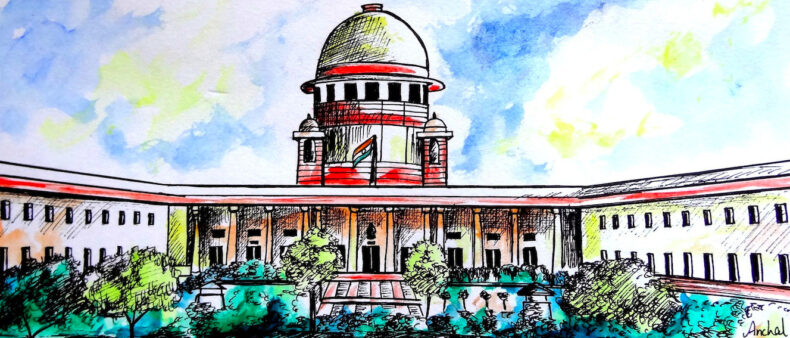In a significant legal development, the Supreme Court of India recently delivered a landmark judgment affirming the power of the High Courts to entertain Section 482 petitions seeking the quashing of First Information Reports (FIRs), even if a charge sheet has been filed during the pendency of the petition. This decision has far-reaching implications for the Indian legal landscape and the rights of individuals facing criminal charges.
BACKGROUND
Section 482 of the Code of Criminal Procedure (CrPC) empowers the High Courts to exercise their inherent jurisdiction to quash criminal proceedings, FIRs, or investigations when they deem it necessary to do so in the interest of justice. Historically, the High Courts have entertained such petitions at various stages of criminal proceedings, including before the charge sheet is filed.
However, a question arose regarding the High Courts’ jurisdiction when a charge sheet had been filed while a Section 482 petition was pending. The issue was whether the High Courts could still examine and quash the FIR, given that the investigation had progressed to the next stage.
THE CASE
In this case, a wife had filed a Section 498A IPC complaint against her mother-in-law and brothers-in-law, alleging cruelty and harassment. Subsequently, charges were framed against the accused based on these allegations. However, the Supreme Court intervened and quashed the case against the mother-in-law and brothers-in-law. A panel consisting of Justices Aniruddha Bose, Sanjay Kumar, and SVN Bhatti observed that numerous allegations appeared unlikely and conflicting.
The Court found it astonishing that the FIR indicated that the incidents spanned from 2007 to 2013, despite no harassment allegations beyond 2009. Additionally, the complaint lacked any specific instances of harassment by the brothers-in-law. The Court also pointed out that the alleged statement made by the mother-in-law, mocking the complainant for wearing a maxi dress, did not constitute cruelty.
The court’s decision was primarily based on the vague and general nature of the allegations presented in the complaint. It emphasized the importance of specific and concrete accusations in cases of this nature and highlighted the need to protect innocent relatives from false and malicious charges.
ALSO READ: Supreme Court Sends Notice to Center & States on Plea for Transgender Job Reservation
SUPREME COURT’S RULING
The Supreme Court, in its recent ruling, addressed this legal conundrum. The apex court affirmed that the power vested in the High Courts under Section 482 of the CrPC is not affected by the filing of a charge sheet. It held that the High Courts can continue to exercise their inherent jurisdiction to quash FIRs and criminal proceedings, even if a charge sheet has been filed.
The court’s rationale behind this decision was to uphold the principles of justice and fairness. It recognized that the filing of a chargesheet does not necessarily imply the guilt of the accused. Therefore, it is crucial for the High Courts to retain their authority to scrutinize FIRs and criminal cases at any stage to prevent abuse of the legal process or protect the rights of the accused. This principle was reiterated in Anand Kumar Mohatta and another vs. State (NCT of Delhi), Department of Home (2019) 11 SCC 706 and in Joseph Salvaraj A. vs. State of Gujarat and others (2011) 7 SCC 59.
Consequently, the court concluded that the evidence on record did not support the direct involvement of the accused in the alleged acts of cruelty, leading to the dismissal of the case against them.
It reaffirms the importance of protecting the rights of the accused and preventing abuse of the legal process. This decision underscores the principles of justice and fairness that are fundamental to the Indian legal system, ensuring that individuals facing criminal charges can seek relief from the High Courts when necessary. It is a step forward in upholding the rule of law and safeguarding the rights of individuals in India’s criminal justice system.













